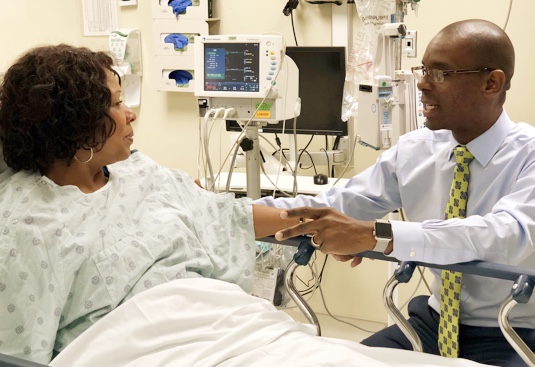Sitting in class in medical school and learning about various diseases often felt like a roll call of many of the people in my life. When reading about lupus, I thought of a childhood friend from my church who was diagnosed with lupus in her late teenage years and died in her mid-20’s. Having discussions about kidney disease reminded me of a family friend who spent 3-4 days a week in dialysis, requiring the remaining days of the week to rebound from the fatigue it often brought her. Discussion of the anticoagulant warfarin (Coumadin), brought back conversations with my grandmother about altering doses of the same medication for her ever prevalent heart disease. The pathology I learned in medical school reminded me too much of my familial circle.
The data is alarming: younger African Americans live with or die from many conditions usually found in white Americans when they are older. Data from the Center for the Control and Prevention of Diseases further show African Americans are more likely to die at earlier ages from all causes. African American women are more likely to have an aggressive form of uterine cancer and are more likely to die from it. Other studies have shown both women and men who are African Americans have more advanced stages of colorectal cancer at diagnosis and have lower survival rates. Prostate cancer, hypertension, Alzheimer’s disease, COPD, and diabetes are other disease processes with disparity in African Americans. Another study demonstrated that African American women have higher rates of maternal death during childbirth.
There are several explanations of these findings. Discussions often center on genetic links that connect diseases in African Americans from one generation to another. Dietary factors such as diets high in salt, sugar, fats, processed foods, and cured meats often found on the table during traditional African American “soul food” meals help explain higher incidences of high blood pressure and kidney disease. High cost and limited access to healthcare has been shown to delay diagnosis and treatment (such as with a colonoscopy to find precancerous polyps before they become cancerous). If there is no available doctor in the neighborhood, city, or town it may be extremely difficult to find one or arrange transportation. Biases (conscious and unconscious) on the part of both physicians and patients can limit care the patient receives. Even more, deeper cultural influences such as mistrust of doctors (an unfortunate result of decades of unchecked medical experimentation on Blacks and other minorities) and reliance solely on faith may additionally negatively influence seeking out medical help.
These factors can seem insurmountable. How can one effectively change the cultural thread from which they are made? Beliefs are deeply embedded and habits are hard to break, especially when some of the behavior, which leads to diseases, is so pervasive and accepted around you. At times, for both patient and the healthcare provider, sometimes it seems easier to not even try.
But we should. We must. We can all play a role in overcoming these challenges. For members of the healthcare profession, we have a responsibility to create awareness of the diseases we know disproportionately affect the patients we treat. We must advocate for early screening, and continue collaborations with government, churches, and community groups to create programs to increase access to care. In my own practice, I have learned to take extra time even at the expense of running a few minutes behind in the office to explain in plain language information about a disease and the treatment plan. I often request additional members of the family to come into the office to help ensure understanding of the plan. Patients must seek health professionals they trust and seek their advice when they first experience symptoms. While you cannot change your genetics, you can move more. Another solution is to make changes in the diet by including vegetables and whole grains as the main course in the meal with a choice of a lean cut meat as a side. Let fruit be your desert. Become an active member of your healthcare team and seek solutions as a team. Ask questions. And if your reliance is solely on faith, recognize all good gifts come from God, even your doctors and the knowledge and advice they share with you.

